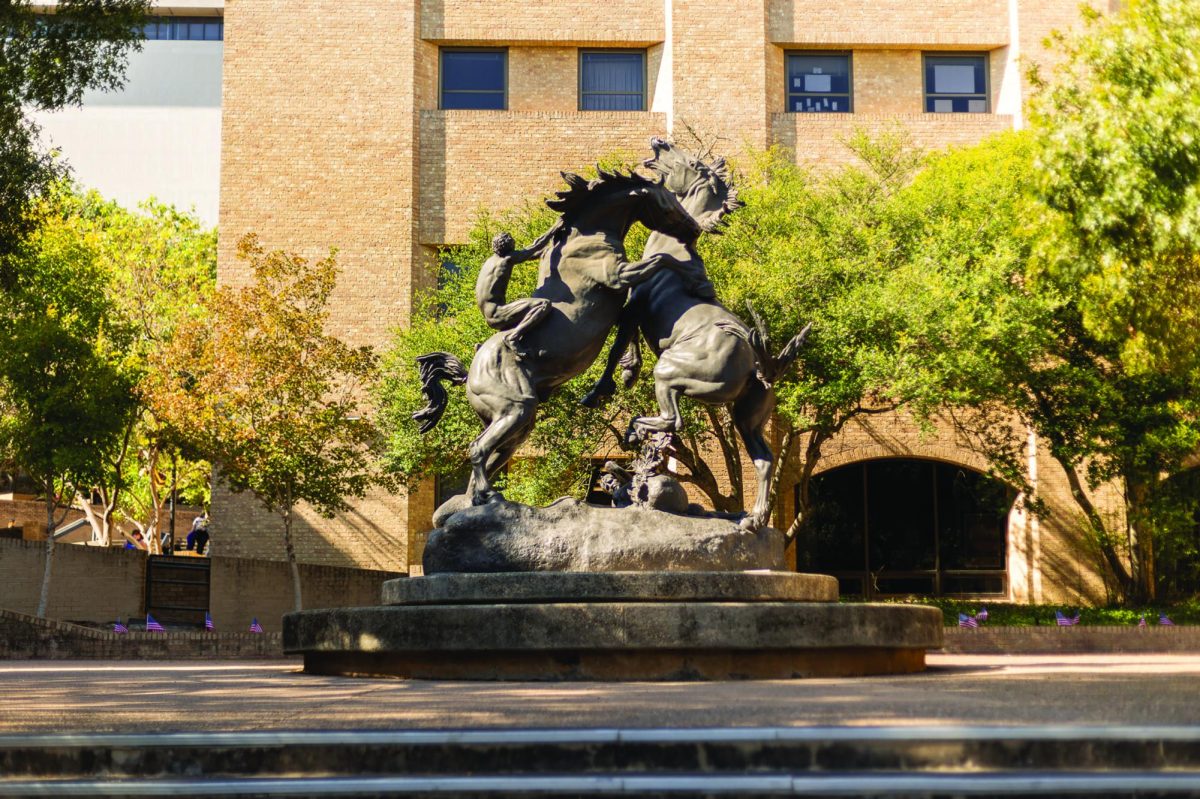Over the past weekend, members of Alpha Delta Pi, a predominantly white sorority at Texas State University, drew controversy after pictures of them playfully dressed as whole cultural identities circulated on Twitter and Instagram. Presumably asked to pick a creative theme for their crafted relationships, members were celebrating the selection of the newest batch of little and big sisters, a traditional mentor-to-mentee conception.
Amongst a variety of group costumes ranging from peas in a pod to a Suite Life of Zack and Cody cosplay, the clear stand outs were the images of comfortably white women dressed in poorly thought out renditions of ‘Mexican’ and ‘Native American’ attire. While immediate attention is drawn to the implications of such outfits, it is time we ask ourselves if we really expect these overwhelmingly white sororities and fraternities that date its founding principles to the mid 19th century to not be racist.
White Greek life has been on the forefront of aesthetic racism on college campuses for quite some time. In 2013, photos from the Arizona State chapter of Tau Kappa Epsilon’s MLK Jr. day party went viral because attendees encouraged to dress ‘like a Black person,’ dawned blackface, and flashed gang signs. Kappa Sigmas at Baylor University hosted a ‘Mexican’-themed Cinco De Mayo party. Just last spring at Texas State University, an image of the face of the black president of the Interfraternity Council edited onto the body of a person who’d been lynched circulated on Twitter. Despite the wave of negative responses and university action that usually results in temporary suspension, these organization cannot seem to get the memo that racism is bad now.
But therein lies the issue, like much of the white community, participants of these tone-deaf appropriations don’t see themselves as racist nor do they see the issue with condensing the stereotypes of oppressed peoples into a three-piece costume that one can wear for a day.
This willful ignorance coincides with a general sense of colorblindness that allows these organizations to also shoo away questions about its demographic make-up.
Historically, Greek organizations are hotbeds for ideas of exclusivity, classism and racism. Lawrence C. Ross, author of Blackballed: The Black and White Politics of Race on America’s Campuses, explains that, as colleges in the U.S. began to accept middle-class and black students, Greek life became a way for upper class, white students to separate themselves. But while consequences of racist costumes are easier to dole out and often fall on individual students, larger issues around the culture promoted by these sororities and fraternities go unaddressed.
Considering the power of organizations that only make up 2 percent of the U.S. population but make up 80 percent of fortune 500 executives, we should be concerned with the clear lack of cultural understanding they consistently display, but perhaps, building whole student movements to suspend five people is not the best use of our energy. As activists, we should be more concerned with creating systems that benefit students of color rather than expend resources to punish individuals who can only be expected to return with the same casual racism for a holiday now less than a month away.
This in no way is meant to let the actions of Alpha Delta Pi members resonate in silence. I, too, wish to go to a campus free of the racism perpetuated by white Greek life, and suspension is not a terrible start. However, at a school that persists with such low regard for the needs of immigrant students and has no educational requirement for students to engage with complex conversations about race and culture, I want to see the energy of students in action for causes that progress the institutional framework of Texas State University rather than wasted on another tired case of white sororities that we should’ve given up on a long time ago.
– Tafari Robertson is a public relations senior
Categories:
The energy you save: why I can’t be bothered by another case of Greek racism
October 4, 2017
0
Donate to The University Star
Your donation will support the student journalists of Texas State University. Your contribution will allow us to purchase equipment and cover our annual website hosting costs.
More to Discover







